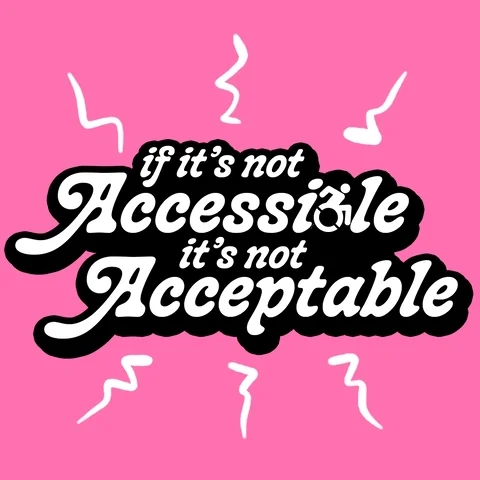Ever wished you had a super smart friend to help you with your writing? Well, that's what AI for writing could be!
 Photo by Possessed Photography on Unsplash
Photo by Possessed Photography on UnsplashIt's like having a handy writing assistant that can help you brainstorm ideas, write essays, or even create social media posts.
Imagine having someone who can help you overcome writer's block or make your writing sound even cooler. That's what AI writing can do.
But, like any tool, there are pros and cons of AI for writing. It's important to understand these in order to use AI effectively.
Pros of Using AI for Writing
 Photo by BoliviaInteligente on Unsplash
Photo by BoliviaInteligente on UnsplashUsing AI for writing can be a total game-changer. Here are just some of the awesome benefits:
1. Supercharge Your Productivity
AI can help speed up your workflow by automating mundane tasks like:
Research
Proofreading
Formatting

Beyond that, AI offers creative inspiration, suggesting ideas or helping to overcome writer's block. With AI as a writing companion, you can focus on higher-level thinking, crafting compelling narratives, and refining your message.
2. Unlock Your Creativity
Stuck in a rut? By generating new ideas, suggesting unexpected connections, and providing diverse perspectives, AI can help you break through creative blocks.

It offers a virtual brainstorming partner, assisting in:
World-building
Character development
Plot twists
With AI as a creative companion, you can explore uncharted territories and bring your unique vision to life.
3. Perfect Your Writing
By providing real-time feedback on grammar, style, and clarity, AI helps you refine your writing.

It can suggest alternative word choices, identify potential inconsistencies, and even offer insights on tone and audience. With AI as your writing partner, you can elevate your writing to new heights of precision and impact.
4. Research Assistant Extraordinaire
Need to find information fast? AI can swiftly gather information from vast datasets, saving you countless hours of manual research.

By analyzing complex information and identifying key trends, AI provides invaluable insights to propel your research forward. With AI as your research partner, you can focus on higher-level analysis and interpretation, while AI handles the data-intensive groundwork.
5. Accessibility for All
By offering customizable tools and adaptive interfaces, AI can accommodate diverse writing needs.

AI for writing can level the playing field with:
Speech-to-text for those with physical impairments
Text-to-speech for visual impairments
Intelligent writing assistance for cognitive differences
It ensures that everyone can express their ideas effectively, regardless of their abilities.
Cons of Using AI for Writing
While AI for writing has its perks, it's important to be aware of the downsides too. Here are some of the things to be aware of when using AI:
 Photo by JESHOOTS.COM on Unsplash
Photo by JESHOOTS.COM on Unsplash1. Lack of Originality
While it can generate impressive text formats, AI's output is fundamentally limited by the data it's been trained on.

This can lead to a lack of truly original thought, as AI tends to produce content that is similar to what it has already seen.
2. Potential for Mistakes
Despite advancements, AI is not infallible. It canproduce:
Inaccurate information
Grammatical mistakes
Logical inconsistencies

Relying solely on AI for writing without human oversight can lead to errors that compromise the quality and credibility of the content.
3. Overreliance
By providing quick and easy solutions, AI can reduce the need for deep analysis and problem-solving.

This can lead to a decline in critical thinking skills, as writers become accustomed to relying on AI-generated content without question.
4. Ethical Concerns
Issues such as copyright infringement, plagiarism, and the potential for AI-generated misinformation can arise.

Additionally, there are concerns about job displacement as AI becomes more sophisticated in writing tasks. These ethical considerations must be carefully addressed to ensure the responsible and beneficial use of AI for writing.
5. Cost
Many advanced AI writing tools require significant financial investment, creating a digital divide.

This limits access for individuals, small businesses, and educational institutions with constrained budgets, potentially perpetuating inequalities in the writing and publishing industries.
The Verdict
AI for writing is a powerful tool that can be a huge help, but it's not a magic solution. It's important to use it wisely and understand its limitations.
 Photo by Igor Omilaev on Unsplash
Photo by Igor Omilaev on UnsplashBy weighing the pros and cons, you can decide if using AI for writing is right for you. Remember, the best approach is to use AI as a tool to enhance your own writing skills, not replace them.
Knowledge Check
Riley is a 16-year-old who's passionate about writing and is trying to balance schoolwork with their creative pursuits.
 Photo by Solen Feyissa on Unsplash
Photo by Solen Feyissa on UnsplashThey've recently discovered AI writing tools and finds them helpful, but want to make sure they're using them responsibly.
Considering the potential drawbacks discussed, which of the following actions would be most effective for Riley to mitigate the risks associated with over-reliance on AI for writing?
A. Increasing the frequency of using AI for all writing tasks.
B. Critically evaluating information generated by AI before incorporating it into their work.
C. Relying solely on AI for brainstorming ideas.
D. Sharing AI-generated text without citations.
Quiz
Which of the above actions should Riley take?
Take Action
To find out more about the best uses of AI for your writing, consider taking the following steps:

Your feedback matters to us.
This Byte helped me better understand the topic.
